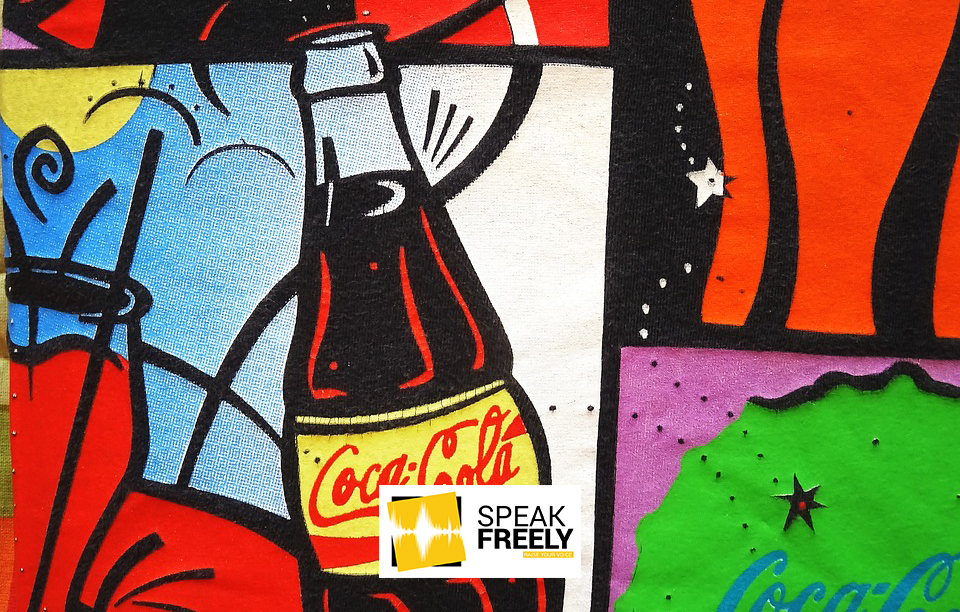Tax Goes Better With Coca-Cola
Coca-Cola has a problem. In both British and Irish markets the company has been subjected to sugar taxes.
Introduced in 2018, the Soft Drinks Industry Levy in the UK has two thresholds for the tax, one at 5g of sugar per 100mls, and one at 8g/100mls. In Ireland, the 2018 Sugar-Sweetened Drinks Tax has the same two thresholds. At 10.6g/100mls, Coca-Cola Classic falls squarely within the higher bracket. This means consumers now pay 24p/litre and 30c/litre extra respectively on top of the company’s recommended retail price for the product line.
Quite admirably, the General Manager of Coca-Cola Great Britain and Ireland, Jon Woods, has come out against these taxes. Writing in company blogs for both countries, Woods has admitted gradual changes to other brands in their portfolio including Fanta, Sprite, Dr. Pepper, Lilt, and Oasis. Coca-Cola Classic, however, remains unchanged.
Woods clarifies that ‘we believe that if Coca-Cola Classic is the drink you prefer you should be able to choose one.’ Unlike Irn-Bru, which reduced its sugar content by over 50%, Coke remains.
Yet, however admirable this public stance may appear, the company’s marketing strategy reveals a very different approach internally and has shrewd echoes of its past failings.
It’s Not the Real Thing
23rd April 1985 — a date that strikes fear into the taste-buds of Coca-Cola fans. Spooked by evidence which suggested that Pepsi was winning the Soda Wars, and that a new formula might hold the key to their success, Coca-Cola publicly pulled their flagship brand. It’s replacement? New Coke.
Coca-Cola built their entire brand on being a nostalgic quintessential part of everyday life — something without which life would be incomplete. Then, in 1985, they told people to live without it. 78 days later Coca-Cola Classic was back.
33 years later, Coca-Cola is — less publicly and for less market-driven reasons — trying it again. Coca-Cola Classic is on the way out, and sugar taxes are to blame.
The new New Coke? Coca-Cola Zero Sugar.
When Coca-Cola Zero launched in 2005, it sold a simple message: Great Coke Taste, Zero Sugar. It was a fair campaign. After all, what was a ‘great Coke taste’? Diet Coke had launched 23 years earlier and was now as much a part of the company’s portfolio as Coca-Cola Classic. They taste little like Coke.
Yes, Zero was riding on Coke’s coattails, but it was its own unique product, with its own unique style. A jet-black can, and a different taste, Coke Zero was its own. It had its own market, and many consumers preferred it to Coke Classic.
How times change. In 2018, Coca-Cola announced they were rebranding, reformulating, and repackaging Coca-Cola Zero as part of the main Classic range. Same red cans. Supposedly the ‘same great Coca-Cola taste and experience you know and love – either with or without sugar’.
The only difference between the two? A small black band around the top of the can saying ‘Zero Sugar, No Calories’. An addendum — a footnote correction at the end of an article.
Open Vagueness
With the relaunch of Coca-Cola Zero Sugar comes the problem for consumers. The product borders on misleading, with the cans almost being identical but the price vastly different. The taste is its own. It’s not Coca-Cola. The advertising is even worse. Except an initial advert which highlighted the co-existence of the two products, the marketing around the main Coca-Cola range has become more and more muddled.
Take the recent ‘Where Everybody Plays’ advert in partnership with the Premier League. Every single drink that appears in the ad is a Coca-Cola Zero Sugar. Interestingly enough, at 0:24 a shop of Coca-Cola memorabilia is featured — not a single reference to the word ‘zero’ or a glimpse of a black band.
This is the dilemma for Coca-Cola. No one wants to pay sugar tax. No one wants a 250ml can for the same price as a 330ml can. People do want Coke. The brand recognition and demand is simply too high to ignore.
So the sugar tax forces them to dilute their flagship brand. To maintain market dominance they take the excellent product which once proudly occupied its own black can, and masquerade it as an equally excellent product which has existed for over 130 years. They confuse the consumer to maintain their profit margin hurt by government intervention. To survive in the short term, they must damage the long term identity of their product range.
To continue to capitalise Coca-Cola, they are being forced to kill off Coca-Cola.
Always Coca-Cola (We Hope)
The solution, of course, is to repeal the sugar taxes in both countries. Consumers don’t need nannies, they need choice. Even Mary Poppins, the most famous nanny of the 20th Century realised that sometimes a spoonful of sugar helps the medicine go down. Why should one of the greatest brands of the 19th Century fall into Zero recognition on the latest whims of 21st century nanny state politicians?
Give consumers the choice between Coca-Cola Classic and Coca-Cola Zero at the same price point, with different packaging. The results might just surprise the politicians at Westminster and the Dáil. We can look after ourselves.
Until then, we should thank the cinema vendors and local restaurant deals that allow us to illegally continue to consume Coca-Cola at the same price as Diet Coke and Coca-Cola Zero Sugar. Their bootleg Coke means we continue to Open Happiness.
This piece solely expresses the opinion of the author and not necessarily the organisation as a whole. Students For Liberty is committed to facilitating a broad dialogue for liberty, representing a variety of opinions. If you’re a student interested in presenting your perspective on this blog, click here to submit a guest post!
Image: Pixabay
